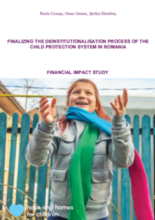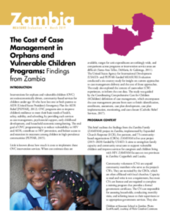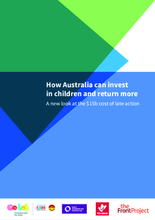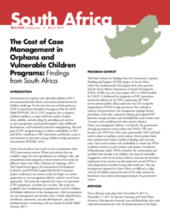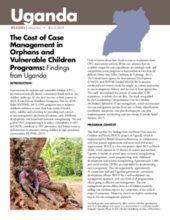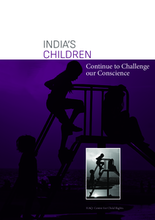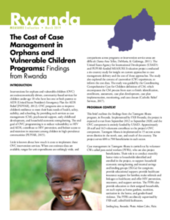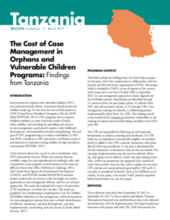Displaying 81 - 90 of 189
This report turns the lens on young people who age out of foster care and explores four areas — education, early parenthood, homelessness and incarceration — where they fare worse than their general population peers in the US.
This study analyzes longitudinal statistics from 18 years of Hope and Homes for Children programs in Romania to demonstrate the cost savings and ability to support a higher number of children at risk if the state were to invest money into programs that allow children to remain in a family environment, rather than be placed in institutional care.
This brief outlines the findings from the Zambia Family project in Zambia, implemented by Expanded Church Response, five partners, and 73 community-based organizations.
The purpose of this report is to: reveal how much Australian governments spend every year because children and young people have reached crisis point and highlight the opportunity of earlier and wiser investment in children to improve the lives of young Australians while reducing pressure on government budgets.
This brief outlines the findings from the Government Capacity Building and Support project, in South Africa, which Pact implemented with support from three partners and the South African Department of Social Development.
This brief outlines the findings from the Better Outcomes for Children and Youth project, in Uganda
This report, which is also the fifth in the series, reflects on how children and the realisation of their rights continue to challenge our conscience even today.
This brief outlines the findings from the Turengere Abana program in Rwanda.
USAID and PEPFAR-funded MEASURE Evaluation worked with six OVC projects in six countries to gain insight on current approaches to OVC case management, map how costs can be linked to OVC case management activities, and determine the cost of OVC case management.
This brief outlines the findings from the Kizazi Kipya project, in Tanzania, which Pact implements in collaboration with five partners and 48 civil society organizations.


